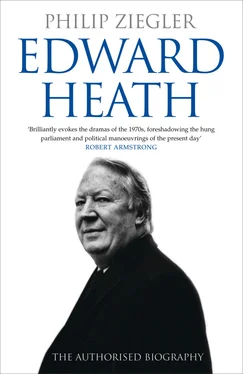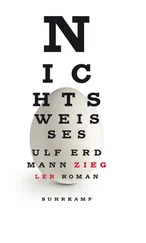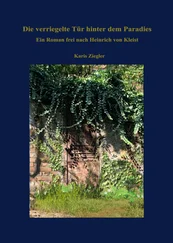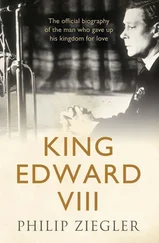Until July 1961, however, the British Government was not committed to make any formal application to join. Exploratory missions were despatched to the most important capitals: Macmillan and Home received an encouraging reception in Bonn, Heath went to Rome in August 1960 and was assured that the Italians would welcome British accession. It was in Paris, though, that the problems were going to be found. Heath went there in October and found the French ‘predictably difficult’. Their stance was not that they opposed British entry but that they professed not to see how it would be possible. It was not as if the United Kingdom alone was applying to join. Largely to counter the EEC, Britain had been instrumental in creating the European Free Trade Area (EFTA), a loose association of seven fringe countries forming a rival trading bloc. Heath was able to tell the Cabinet that EFTA welcomed the British application, but only on the understanding that, in any negotiations, the British ‘would have full regard to the interests of their partners’. Were such interests, the French wondered, compatible with membership of the EEC? 14
Worse still, there was the Commonwealth. The French had defended the position of its former empire when the Common Market was established; such arrangements could hardly now be renegotiated to meet a still greater complex of individual needs. Macmillan hopefully proposed that, when explaining the British position to the Commonwealth, ‘we should set the economic considerations in the context of the great political issues which were involved and the importance of reaching a settlement in the interest of Western unity’. 15That was all very well, said the French, but would the Commonwealth countries necessarily put the need for Western unity ahead of their export markets? And, if they did not, would the British be prepared to abandon them? Heath was impressed by the calibre of the French negotiators but not by their readiness to compromise. Couve de Murville, the Foreign Minister, was coolly non-committal. His deputy, Olivier Wormser, was quite as cool but rather more ready to commit himself. His preliminary views on the question of Commonwealth exports were so unforthcoming that Maudling exclaimed: ‘It seems to me to be pointless to be talking about any negotiations with them. They have in effect rejected in advance any proposals on the points of vital interest to us.’ 16Baumgartner, the Minister of Finance, was one of the few Frenchmen in a high position who seemed favourable to British entry; but, he warned Heath, his Cabinet was divided and ‘he did not know what General de Gaulle’s innermost thoughts were on this’. 17
Nor did anyone else. The General kept his own counsel. Pierson Dixon, the British Ambassador in Paris, believed that de Gaulle was hostile to British entry but hedged his bets by saying that he would ‘not be able to turn down a genuine offer from us to join’; Macmillan clung to his hope that the General would welcome the UK as an ally against creeping federalism in Europe. Jean Monnet, the great architect of European unity, maintained that in the last resort de Gaulle would accept British entry because his views ‘were coloured and guided by thinking how history would judge his actions’. One thing on which everyone agreed was that, if a British application was in principle desirable, there was no point in deferring it in the hope that de Gaulle would make his intentions known. In May 1961 Heath told the Cabinet that the signals from Paris were more encouraging; the French seemed less unwilling to take into account British obligations to EFTA and the Commonwealth. Ministers were divided: Christopher Soames, the Minister for Agriculture, Fisheries and Food, Duncan Sandys, the Minister for Defence, and Heath were eager to start negotiations, Hailsham and Maudling saw no justification for such a step, Butler was characteristically uncertain. The Prime Minister had no doubts; it would have taken more than a few sceptics to check him. The decision to enter negotiations was announced in the House of Commons on 31 July. A fortnight later, on holiday in Brittany, Heath read in a newspaper that he was to conduct the talks. When he had left London a final decision on the matter had still not been reached. ‘There was nothing that I wanted more than this.’ 18
A formidably competent team was quickly assembled. The original proposal had been that the leading official should be Eric Roll, a polyglot civil servant of Austrian birth, who was an academic economist by training and possessed the unusual ability to lip-read in three languages – an invaluable asset in international negotiations. Heath respected his talents but told Macmillan he doubted whether he should be the senior official on the delegation. Macmillan agreed: ‘He thinks it specially important that the official in charge should be a man of standing and authority.’ That man, at Heath’s insistence, was Pierson Dixon: ‘Knowing that French agreement was the key to success, he wanted to put the man who was closest to them in charge in Brussels.’ The disadvantage of this was that, if Dixon was much of the time in Brussels, he would no longer be so close to those making policy in Paris. Probably it made little difference to the final outcome but it certainly placed an almost insupportable burden on Dixon himself and, on balance, was a mistake. 19
But the real leader was Heath himself. The members of his team were united in their admiration for his achievements. He was outstanding, said Roll. ‘He combined in a unique way the qualities of a first rate official having complete mastery of complex technical details with the necessary political touch in his contacts with Ministers and officials of other countries, with the press and with London. He was the sort of Minister British senior civil servants particularly admire and like to work with, always ready to listen to advice yet quite clear in the end as to what ought to be said and done.’ Donald Maitland, the chief press officer seconded from the Foreign Office, wrote that, within the first few days, ‘Heath managed to create an almost tangible team spirit among members of the delegation. He was relaxed yet totally in control, he let others speak, including the most junior, and he ensured that by the end of the evening we each knew what was expected of us.’ The pressure on both Heath and his team was unremitting. In the eighteen months after May 1961 Heath flew 100,000 miles and spent one night in five abroad. His team spent less time in aeroplanes but were more often away from home; when the negotiations finally ended Heath sent Donald Maitland’s wife a bouquet of flowers with an apology for so often disrupting her family life. 20
Jean Monnet was the European whom Heath most respected and to whose opinions he paid the greatest heed. In Monnet’s view the way was wide open for British entry: ‘The greatest difficulty was to take the decision which the British Government has taken.’ The right tactic, he urged, was that Britain should accept the Treaty of Rome as it stood and then, having acceded, seek to change things from within. The idea had obvious attractions. Even de Gaulle could hardly have rejected an unconditional application to join and if Britain had become a member in mid-1961 it would have been in time to participate in the formulation of the Common Agricultural Policy instead of being confronted with a system largely devised to meet the needs of French farmers. But though left to himself Heath would probably have proceeded along such lines, he knew that there was no possibility that either the Government or the country would let him do so. Willynilly, he was doomed to fight for the interests of EFTA and the Commonwealth. He told Monnet that Macmillan would never ‘let the substantial domestic opposition which he faced prevent him from carrying out his aim of taking the United Kingdom into the developing European Union’; but in fact Heath knew that such opposition could not be ignored and that his conduct of negotiations in Brussels would have to take account of it. 21
Читать дальше












